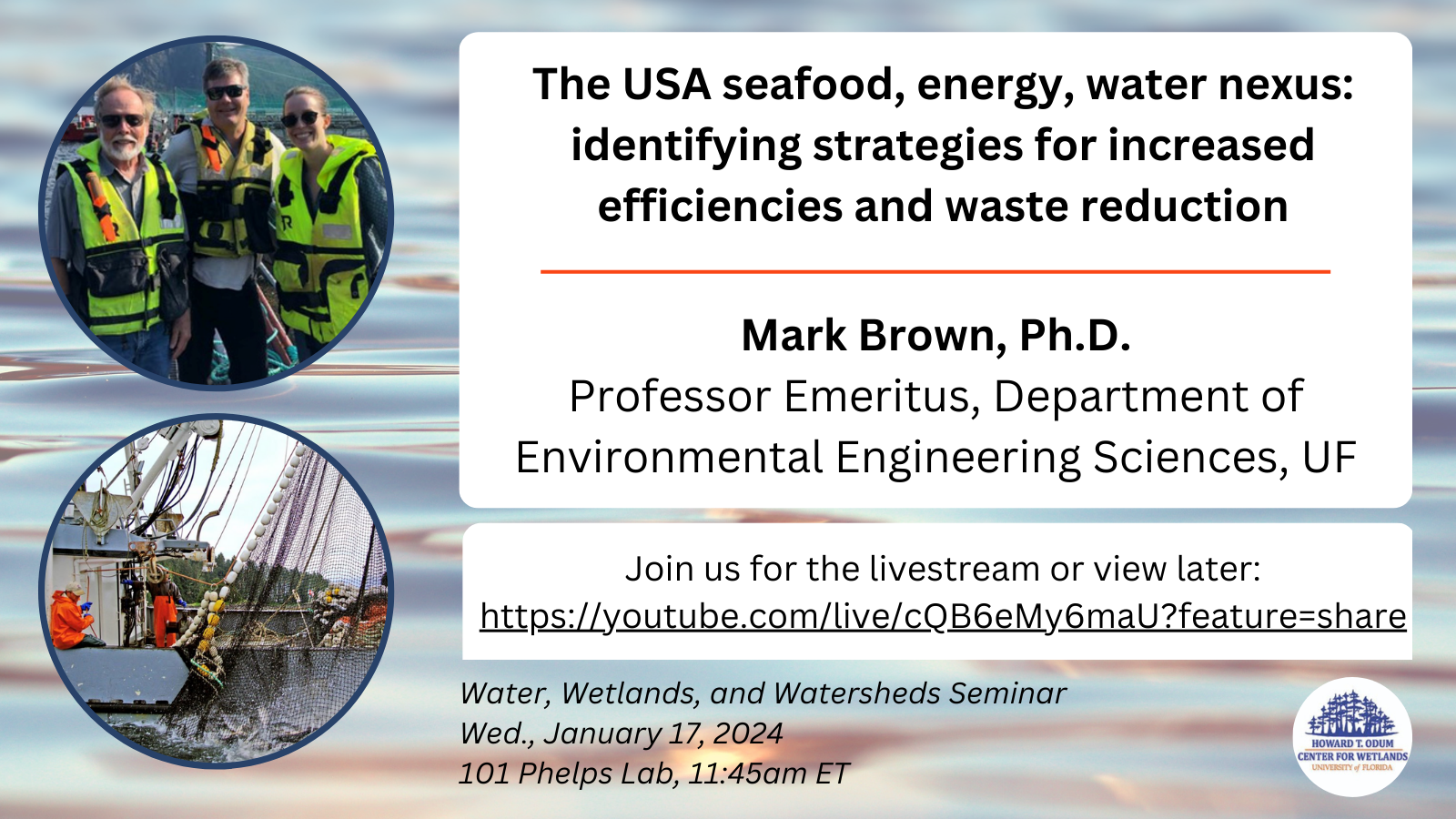
Mark T. Brown, Professor Emeritus, Department of Environmental Engineering Sciences, UF
Join us for the livestream January 17th, 11:45am ET: https://youtube.com/live/cQB6eMy6maU?feature=share
(Please visit our YouTube channel main page for the stream if there are any issues with the direct link.)
ABSTRACT
In this research project, we use a life cycle approach to evaluate the energy, water, seafood nexus in the main fisheries that supply USA seafood consumption. The study, funded by the US Department of Agriculture under the National Science Foundation’s Innovations at the Nexus of Food, Energy and Water Systems (INFEWS) program, is investigating energy and water consumption in the USA seafood supply chain to identify strategies for increased efficiencies and reduction of wastes.
FAO statistics on global fisheries provide both optimism and warning signs for the future of a sustainable seafood system. In 2018, global seafood captures reached 96.4 million tonnes, an increase of over 5% from the previous 3 years. Yet, as of 2017, 34.2% of global fish stocks were overexploited, an increase of 142% since 1974 (FAO, 2020). Worldwide, seafood accounts for 20% of human protein consumption, while, estimates of global harvest that is either lost or wasted have reached 35%. Highest wastage rates are in North America and Oceania, where nearly 50% of seafood is wasted at the consumption stage. Clearly addressing waste and increasing efficiencies in the energy, water, seafood nexus will advance long term food security and resilience.
BIO
Dr. Mark Brown is Professor Emeritus of Environmental Engineering Sciences and Director of the Center for Environmental Policy at the University of Florida. He was director of the Howard T. Odum Center for Wetlands from 2006-2016 and was a past president of the American Ecological Engineering Society. He is a systems ecologist, whose research focuses on systems ecology, ecological engineering and emergy analysis.
POSTCARD
